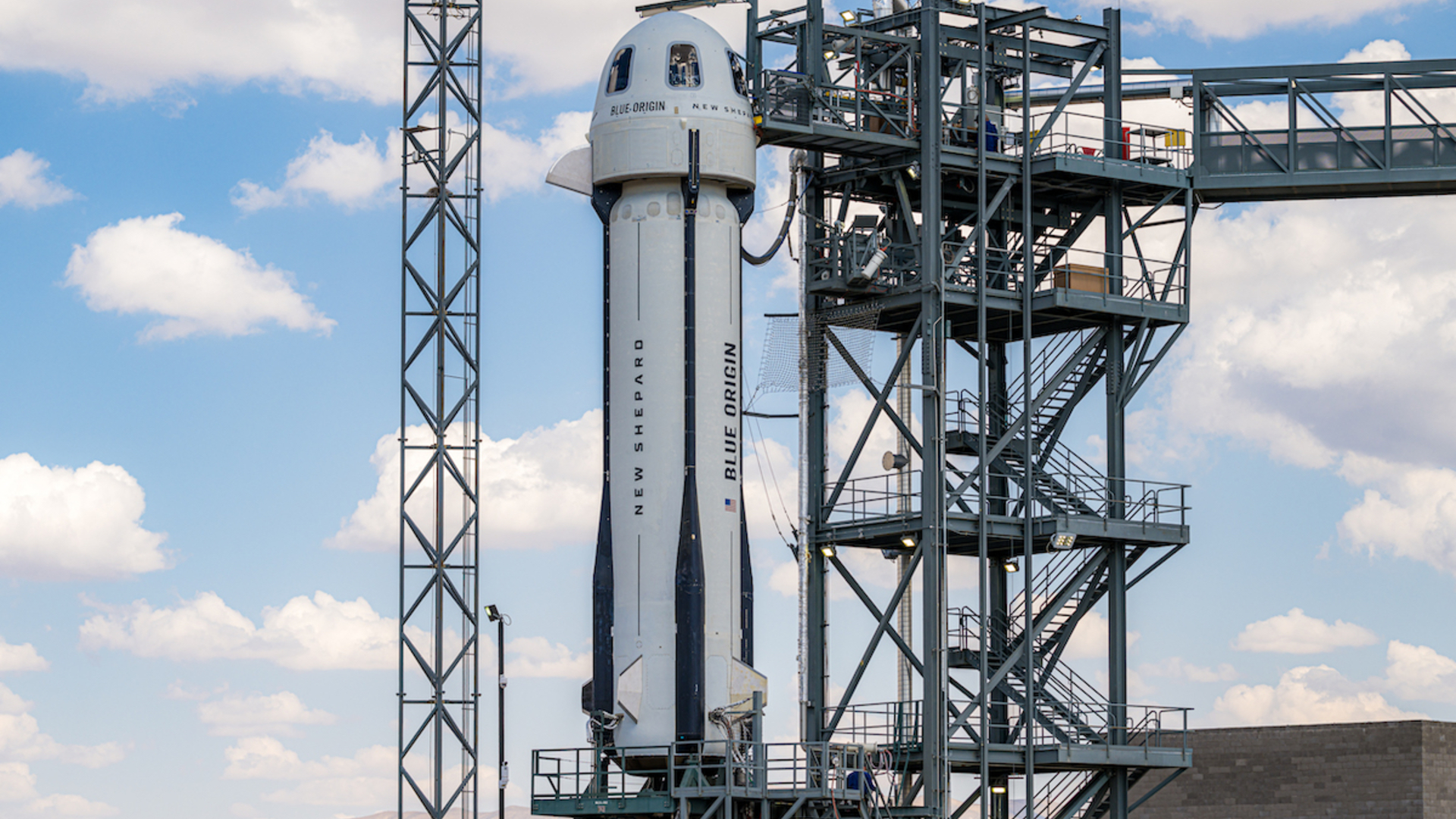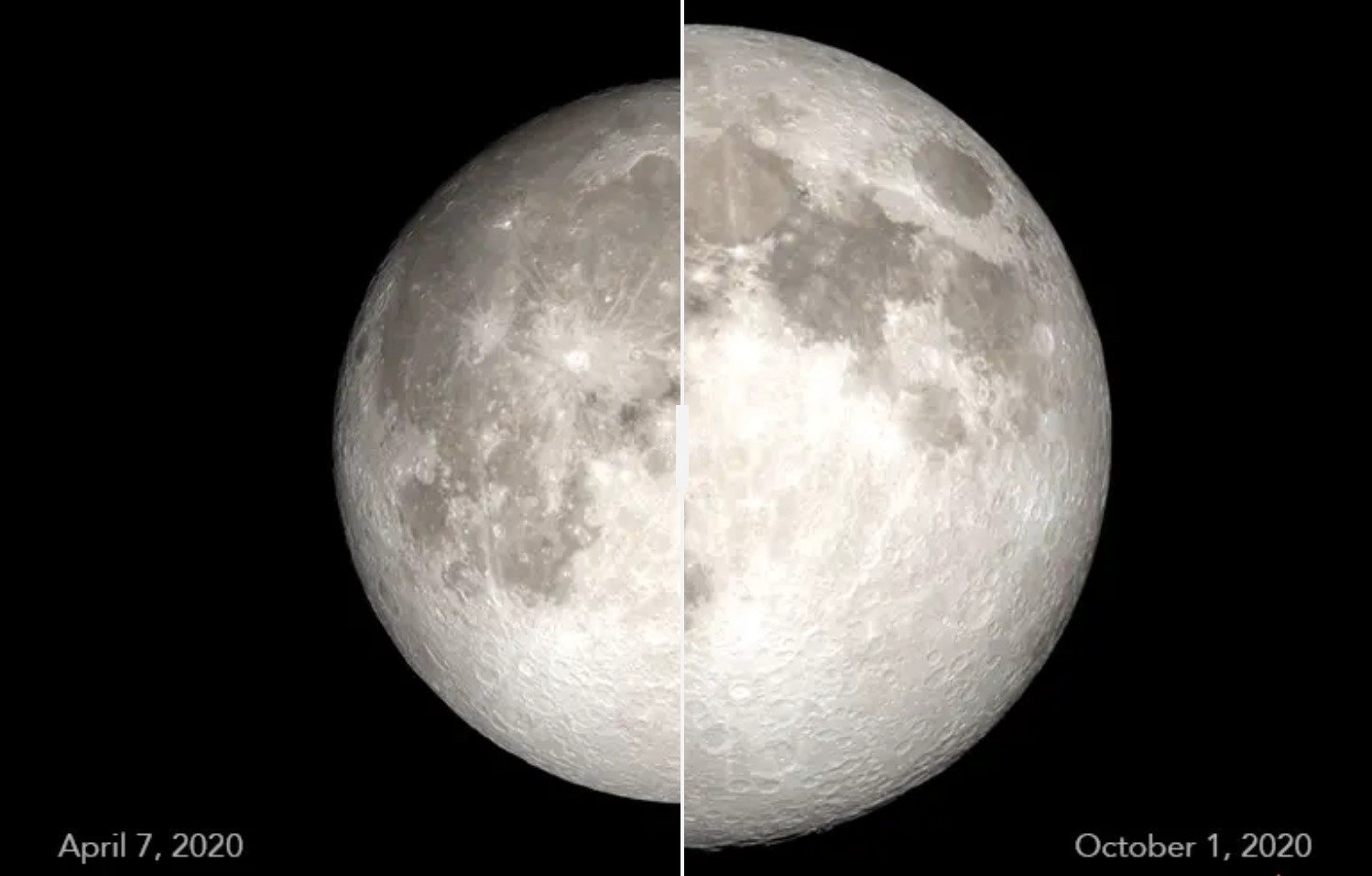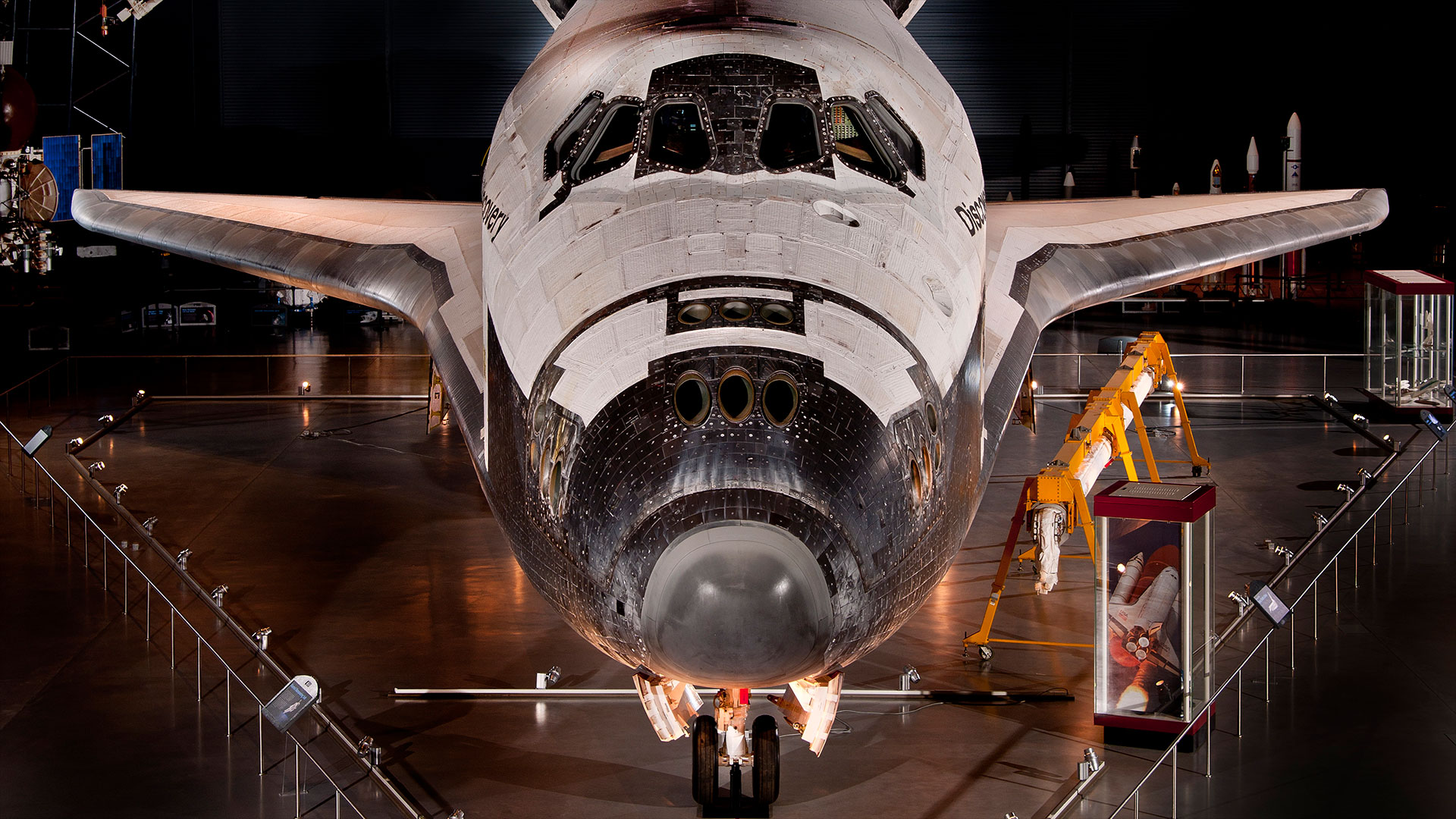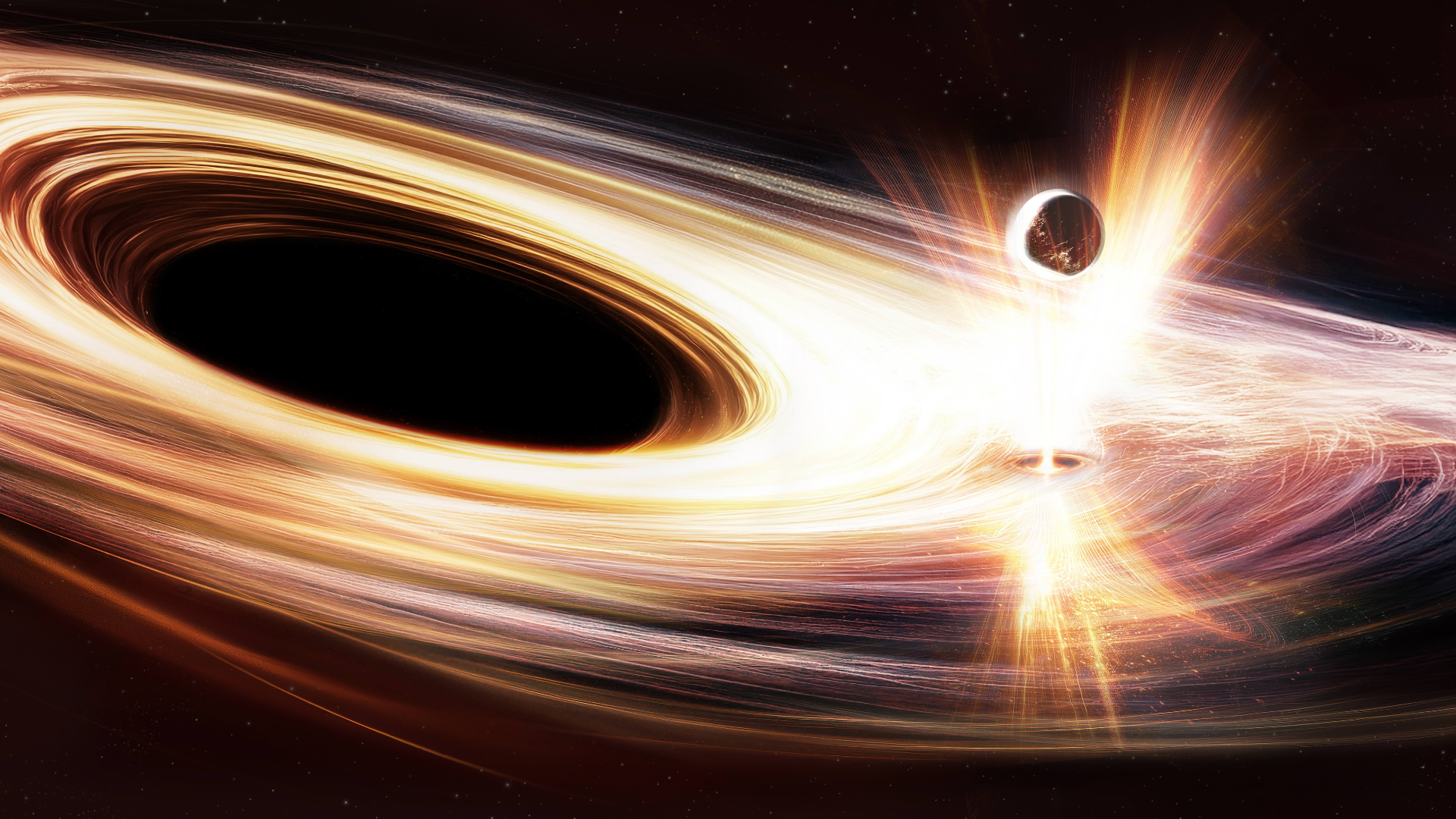India's ambitious 2nd Mars mission to include a rover, helicopter, sky crane and a supersonic parachute
India is aiming high with its next Mars mission.
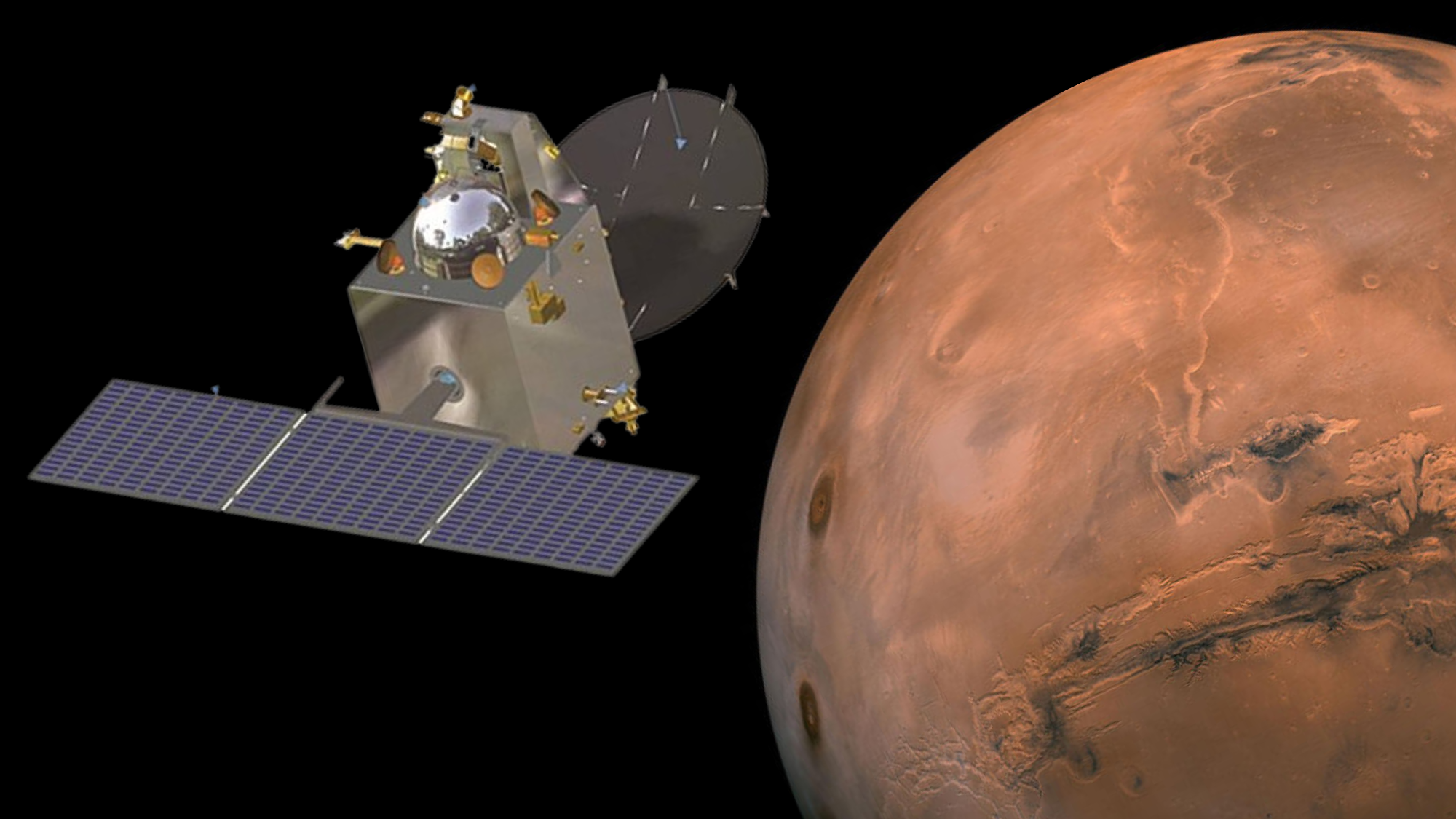
India is preparing to launch a family of seemingly sci-fi robots to Mars, perhaps as soon as late 2024.
The Mars Orbiter Mission-2 (MOM-2), or Mangalyaan-2 (Hindi for "Mars Craft"), is set to include a rover and a helicopter, like a robotic NASA duo already on Mars — the Perseverance rover and now-grounded Ingenuity. A supersonic parachute and a sky crane that will lower the rover onto the Martian surface will also be part of Mangalyaan-2, Indian Space Research Organisation (ISRO) officials said last week during a presentation at the Space Applications Centre in Gujarat, India Today reported.
NASA pioneered the use of a Mars sky crane in 2012 with its Curiosity rover and employed it again in 2021 to get Perseverance down. The Ingenuity helicopter was attached to Perseverance's underbelly during the journey to Mars and later deployed onto the surface for its history-making mission.
Related: Mars: Everything you need to know about the Red Planet
India aims to accomplish similar milestones, and if successful, would become the third country to land a spacecraft on Mars, after the United States and China. Media reports from late last year suggest that Mangalyaan-2 will have at least four science instruments designed to study the early history of Mars, analyze its leaking atmosphere, and look for a hypothesized dust ring around the planet generated by its two moons, Phobos and Deimos.
Local media reports suggest that Mangalyaan-2 could launch as soon as later this year, a timeline that seems a bit ambitious, given that few key components are still in development, including the multi-instrument helicopter, the sky crane and the supersonic parachute. ISRO has so far made no official announcements about the mission.
India's first Mars mission, MOM or Mangalyaan, was a homegrown technology-demonstrating orbiter put together in 18 months that reached Mars in September 2014. Mangalyaan's success made India the fourth entity to get an orbiter to Mars, after the United States, the European Space Agency and the Soviet Union — but India did so on its first try, and on a shoestring budget of $74 million. For comparison, NASA's most recent Mars orbiter, MAVEN, has a price tag of about $670 million.
Get the Space.com Newsletter
Breaking space news, the latest updates on rocket launches, skywatching events and more!
Following the accomplishment, and to celebrate the country's first foray into interplanetary space, in 2016 the Reserve Bank of India (RBI) introduced an illustration of Mangalyaan on the back of the country's highest denomination currency note of ₹2,000 (approximately $24 US). (Last May, the RBI decided to withdraw that note from circulation, following what the organization said was a successful demonetization effort to curb black money.)
Mangalyaan also inspired multiple works in Indian cinema, including the 2019 popular Hindi movie "Mission Mangal," a fictional take on the lives of the project's scientists.
ISRO designed Mangalyaan to last just six to 10 months, but the orbiter far exceeded those expectations, operating for nearly eight years before ISRO lost contact with it in April 2022.
Join our Space Forums to keep talking space on the latest missions, night sky and more! And if you have a news tip, correction or comment, let us know at: community@space.com.

Sharmila Kuthunur is a Seattle-based science journalist focusing on astronomy and space exploration. Her work has also appeared in Scientific American, Astronomy and Live Science, among other publications. She has earned a master's degree in journalism from Northeastern University in Boston. Follow her on BlueSky @skuthunur.bsky.social





